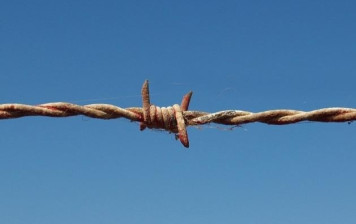
Peter Demant
Question: How do you see the enmity of Erdogan against you? The Turkish government has of course its own explanation of “Gülen working to overthrow it”. If this were true, its opposition to Hizmet would be well understandable. However, I think these are lies. Yet if Turkey’s official justification is based on a lie, there must be another reason for Erdogan’s hatred. What do you think it is? What is the real motive behind this hostility to you?
Fethullah Gülen: Hizmet has always kept distance from politics. However, when a political party shared our values of democracy and civil rights, then we would support it ad hoc. Thus with [Süleyman] Demirel, whom I met several times at a time Hizmet was still much smaller. And also with open-minded social democrats such as Bülent Ecevit I had many conversations. This allowed us to deploy our activities here in USA. Hizmet schools grew and became even a reference. Also Turgut Özal, who opened Turkey to globalization, was a big friend of ours.
However, when [Necmettin] Erbakan tried to mobilize me into his party, I declined. We are against political Islam. Erdogan, who was a student of Erbakan, used to consult with me too. At times he appeared to support democracy. He pressed us insistently that some Hizmet friends help him. In response I recommended two of our friends, Muhammed Selçuk and İlhan İşbilen. However, it is wrong to call this an alliance. We supported AKP from the outside because of its activities in favor of democracy.
What caused Erdogan’s to turn against me? Two factors stand out. First, Erdogan is envious of Hizmet’s activities and success all over the world. As a person he is full of rancor because he is unable to duplicate these.
Secondly, there is the issue of Hizmet schools. We operate hundreds of them in Turkey and in some 170 countries around the world, more than 1.400 schools. Erdogan wanted to control our network as a tool to further his aim of dominating the entire Islamic world, as caliph. But Hizmet refused to be used in such a way. Then Erdogan thought: if they don’t help me in this, they can’t exist, and started to close our schools.
The Kurds and Syria are two other elements. I advised Erdogan, by letter and through some congressman who visited me here, to grant the Kurds wider access to schools and universities, and to introduce a more liberal regime regarding Kurdish language use, and perhaps to establish a federal system like here in USA. For some time Erdogan followed the line of liberalization and negotiation. But then he returned to repression. This is not going to work though. Turkey needs a more federal regime.
As for Syria, for a long time Erdogan wanted very much to go to Damascus, to pray in the Omayyad mosque. This, he supposed, would have a symbolic echo, as this was the place where the Caliphate was proclaimed. To achieve this, he needed rapprochement with Assad. I thought, on the other hand, that Syria just like Turkey itself needed democratization, in order to accommodate all its sects. I wrote to Erdogan that he should convince Assad to democratize Syria. Neither regime violence nor violent revolution is the solution. In a transitional period, Assad might even remain president for one or two mandates, before retiring. All this more or less according to the Ataturk model. [Turkish] Ministers [Bülent] Arınç; and [Ahmet] Davutoglu visited me here: I reiterated the same message for Erdogan through them. However, Erdogan wanted to establish a more direct domination over Syria and rejected my idea.
I think these are the principal reasons behind Erdogan’s rancor.
== == ==
Peter Demant is a historian and International Relations scholar specialized in contemporary Middle Eastern affairs, the Israel-Palestine issue, the Muslim world, and its relations with the West.
Source: Excerpt from Malala, V. 6 N. 9 (2018) / Entrevistas , July 15, 2018
Tags: Erdogan's anti-Gulen crackdown | Interviews |
Related Articles

A Meditation on Persecution – Troubles don’t last always
The most recent persecutions have destroyed livelihoods and lives. Our collective voices should oppose and resist the authoritarian actions of the Turkish government. We must organize to protect…

Erdogan’s Most Vulnerable Victims: Women and Children
Since July 15 attempted coup, women have been subjected to an uptick of a variety of intimidation strategies, including rape, the threat of rape, harassment, and other forms…

Fethullah Gulen responds to allegations
A TV channel started a defamation of Fethullah Gulen in June 1999 in Turkey based on a montage videocassette. Below is an phone interview with Mr. Gulen by…
